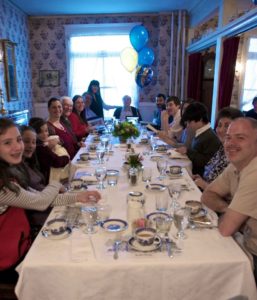
Rarely do I watch or listen to the news in the mornings. It is too soon after my daily practices and way too much of a shock to my mind. And yet today, I chose to ignore that awareness and listen in out of concern for family members, wondering and somewhat anxious about Thanksgiving. The top bill on the news, of course, was the pandemic and how it drastically changes our traditional Thanksgiving celebrations here in the U.S.
My mind then wandered to my Buddhist dharma practice, and I contemplated what the Buddha might advise or offer us around the upcoming holiday:
1) There is suffering. I think the Buddha would start there. Recognize that this is real. We are suffering. We want Thanksgiving as it has always been. Many of us feel torn. Should we go home or stay away. Gather with family or not. Take risks or not. We also do not know what will happen. Such thoughts can weigh heavily upon us.
I believe the compassion of the Buddha would come to the fore here. He would remind us to embrace this suffering. Hold it gently. Please don’t deny it, push it away, or react to it. Just recognize that it is here, give it some breathing room, and hold it gently.
2) There is a cause of our suffering. Usually, it’s because we are attached and have difficulty letting go. And letting go of Thanksgiving is a big “let go” for many. It’s such a wonderful holiday. So, we need to let go of our attachment to Thanksgiving in the way it occurs in our mind from past experiences. But feel it thoroughly first.
Then, I think the Buddha might suggest seeing ALL that is here and not just the disappointment (although we must also hold this gently). Try being grateful for all that is here and all that is good in life. If family members are safe and healthy right now, celebrate that. If we have food to eat, give thanks for it. Make a list of all that you are grateful for right now.
3) Wise View. When we look at our world right now, it is clear that the pandemic is here for a while, and there is a significant surge in cases everywhere. The spread happens quickly, despite our best efforts. There is a risk to all travel and even higher risk to gatherings indoors, even in small numbers of people not from the same household. Another aspect of the wise view might include our deepest love for our family members and our deep care level. Part of holding a “wise view” includes “seeing” the potential impact of our actions.
4) Wise Consideration. As we consider our choices and actions, it is helpful to consider and explore what underlies our options and what we need to evaluate. Generally, we need to consider and acknowledge all that is happening and its impact on our choices. We may recognize that while we care deeply for our families and their health and safety, it is understandable that we also really want to see them, be with them, and celebrate with them.
On further investigation, however, we may see that our desire to connect and feel loved is also a contributing factor to our willingness to act. And if we do, are we acting in the best interests of all, or only the interests of ourselves? There is no need to judge oneself if this is true. It is a part of human nature and a perfectly wonderful thing to want. However, it just may be an action that could potentially cause more harm and, as such, may not be considered wise.
5) Wise Action and the Middle Path. Most likely, the Buddha would not tell us what to do. He would point to the “path” (factors to consider) and invite us to choose our wise action. In so doing, we would weigh our options and determine the course of action most likely to lead to the greatest happiness for self and others and the least harm or suffering for self and others. We would apply compassion to our choice too. What is the most compassionate and caring choice?
6) Give Thanks. Regardless of what you choose with your Thanksgiving plans, you can always maintain the spirit of the holiday by taking the time to give more thanks. Make a list of all the things you are thankful for in your life and share with friends and family. Gratitude is one of the best antidotes for feeling sad or disappointed.
7) This, too, shall pass. Finally, the Buddha might remind us that nothing is permanent and that our current situation will change in time. When and how we do not precisely know. But change it will.
Apply the wisdom of the Buddha to your Thanksgiving choices. Please, share in the chat what you have decided and why, or share that for which you are grateful. Tomorrow, I will post my reflections and share how I applied the wisdom of the Buddha in making this decision for my family’s gathering. Let us inspire each other to keep ourselves and our families safe this holiday.
Happy Thanksgiving!

